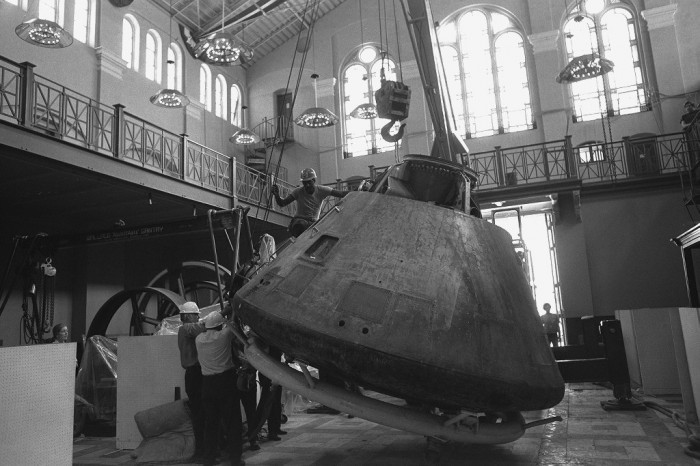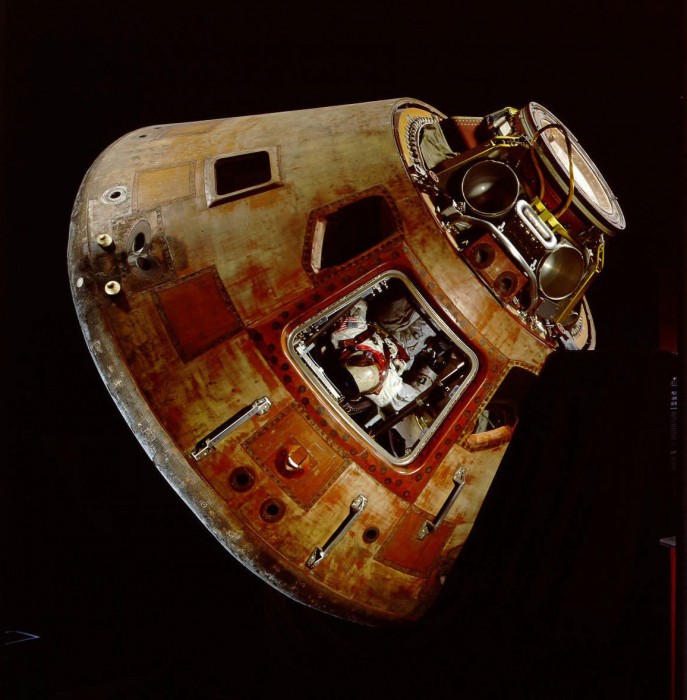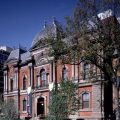Today in Smithsonian History: September 1, 1975

The Apollo 11 Command Module being prepared to be moved out of the Arts and Industries Building, September 1975. (Photo by Richard Farrar)
September 1, 1975 The north hall of the Arts and Industries building displaying “famous firsts” in aviation and space flight history closes on September 1 so that the building may be renovated for the Bicentennial of the American Revolution exhibit. This hall was the last section of the A&I Building still open to the public.

The Apollo 11 Command Module, “Columbia,” was the living quarters for the three-person crew during most of the first manned lunar landing mission in July 1969. (Photo courtesy National Air and Space Museum)
The Apollo 11 Command Module, “Columbia,” was the living quarters for the three-person crew during most of the first manned lunar landing mission in July 1969. On July 16, 1969, Neil Armstrong, Edwin “Buzz” Aldrin and Michael Collins were launched from Cape Kennedy atop a Saturn V rocket. This Command Module, no. 107, manufactured by North American Rockwell, was one of three parts of the complete Apollo spacecraft. The other two parts were the Service Module and the Lunar Module, nicknamed “Eagle.” The Service Module contained the main spacecraft propulsion system and consumables while the Lunar Module was the two-person craft used by Armstrong and Aldrin to descend to the Moon’s surface on July 20. The Command Module is the only portion of the spacecraft to return to Earth.
It was transferred to the Smithsonian in 1970 following a NASA-sponsored tour of American cities. The Apollo CM Columbia can be seen in the newly renovated Boeing Milestones of Flight Hall at the Air and Space Museum.
Read more about Apollo 11: The Writings on the Wall.
Courtesy of Smithsonian Institution Archives
Posted: 1 September 2019
- Categories:







